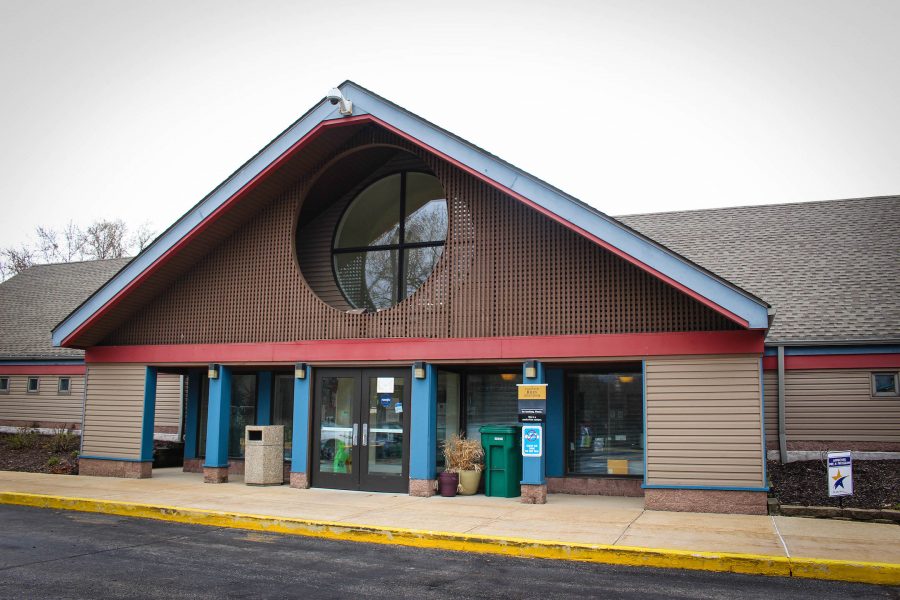Charlotte R. Riley Child Center to close
Faculty members express concern over lack of transparency in Riley Center closing
The Charlotte R. Riley Child Center will be closing its doors after 25 years of service.
The PNW administration recently announced that the Charlotte R. Riley Child Center would be closing after 25 years of nationally accredited service to the Hammond community.
The announcement was made on April 7. The center has had an annual deficit of between $40,000 and $60,000 since 2013. The City of Hammond was going to donate a grant to the center in 2013 to keep it open, as the center was and remains the most highly accredited child care facility in the area, but the grant was never donated. Control of the center shifted from the Department of Behavioral Sciences to PUC’s business department in 2013 to help keep track of the financial issues with the center. The administration and business department alone made the decision to close the center. Elsa Weber, associate professor of early childhood, disagreed with the administration’s lack of faculty input in regards to closing the center.
“Really nobody in the faculty was notified or consulted,” Weber said. “Nobody asked us for advice or consultation. One of my major concerns with that is that faculty control is being pushed away from curriculum.”
Weber raised these concerns again to Thomas Keon, PNW chancellor, and members of the PNW Faculty Senate at the April 14 Faculty Senate meeting at the Westville campus. Keon responded to Weber by explaining that the decision was made due to the large deficit the center faced and due to the belief that closing the center would not have a major negative impact on degree seeking students.
The center employs a secretary, five teachers and a director, Tamra Bottomlee. Bottomlee can remain on staff, as she teaches a course outside of the center to PNW students. The secretary is allowed and encouraged to apply for another clerical job within the university. The five teachers will not be returning to work at PNW, as their job was teaching children who attended the center, not PNW students.
“Our hope is that our children, families, student staff and full-time staff will not feel displaced but will eventually find wonderful, new caring educational environments for their children, and that the staff will find supportive new work opportunities,” Bottomlee said. “The most any one of us can ask for is that this change will ultimately benefit others.”
In the late 1980s, the center served between 75 and 85 children; however, in later years due to new state licensing guidelines, the center had to reduce its student capacity to 60, thus cutting the income made at the center. Wes Lukoshus, university spokesman, said that reduction in attendance at the center was also due to a shift in the student demographic at the Hammond campus.
“It used to be that a perk of coming here was that your kids had a place to stay while you were in class,” Lukoshus said. “Our university has shifted, as we now have more young students than older students with kids.”
Paul McGrath, interim department head for behavioral sciences, said that faculty was privy to the financial concerns with the center and the current $8 million deficit the university is facing, but they still feel the situation was handled poorly, especially since nobody from the department heard anything about the center being closing until it was announced on April 7.
“We do understand the financial situation with the enrollment drop. We just don’t think this was the right thing to close,” McGrath said. “It’s not just a childcare center. It’s part of academics.”
Along with serving as a childcare facility, the center also served as an instructional facility for students in the Department of Behavioral Sciences, a means for a degree program and a place for faculty members to do research. Su-Jeong Wee, associate professor of human development, family studies and early childhood, had planned to conduct research at the Riley Center in the fall but will now have to find a new center. Wee has yet to choose another suitable alternative.
“There are many reasons why I chose the Riley Center for my project, but that most critical ones are that the Riley Center, as a laboratory school, provides the right environment and people to carry out this project. Teachers at Riley are very open and are eager not only to participate in the research, but also cooperate in developing a better education for their students,” Wee said.
Members of the Department of Behavioral Sciences are looking for a replacement childcare center for early childhood development and education students but have not found a center with the same accreditation or standards as the Riley Center. The Westville campus houses the Lion Cubs Child Care in the LSF Building, but the lead teacher lacks the qualification to supervise PNW students, and the Westville center does not allow children from the Westville community to enroll in the center. The Lion Cubs center is also funded by student service fees whereas the Riley Center was meant to be self-sustaining. Anne Edwards, associate professor of human development and family studies, believes that the closing of the Riley Center was due to the ideology of the administration that the center was meant to be a way to earn money over anything else.
“The faculty sees it as a laboratory and the administration sees it as a means of income,” Edwards said.
Edwards said that the Department of Behavioral Sciences is moving forward and planning to ensure that its students will still receive the same quality education.
“We are definitely scrambling to figure out what to do, but we want students to know that their major is protected.”
As of now, there are currently no plans on what the Riley Center building will become; however senior leadership has agreed that the center needs to maintain the Charlotte Riley name, as the center was funded by the Riley family. The Riley family has been informed of the center’s closing.




